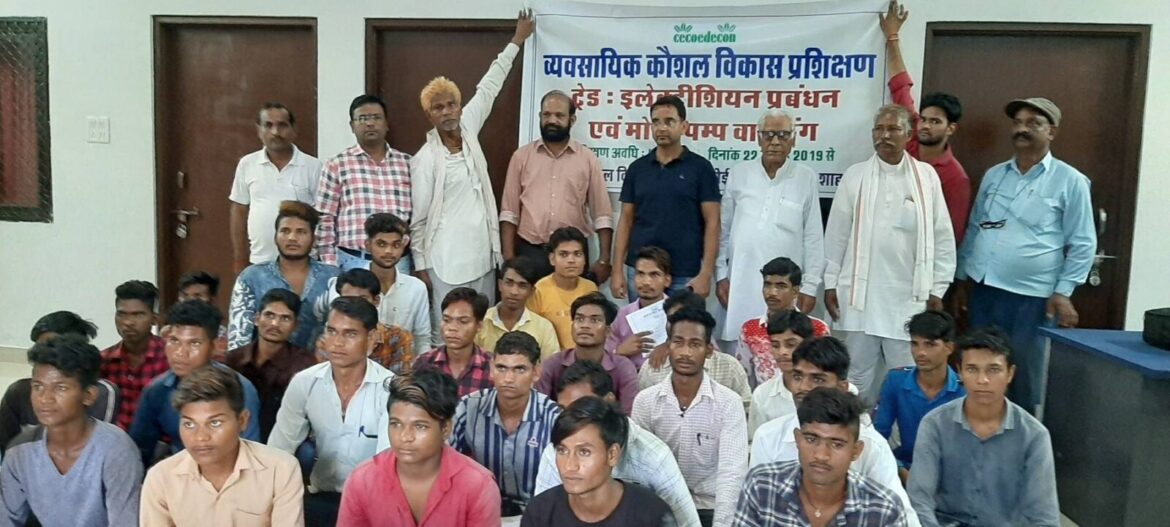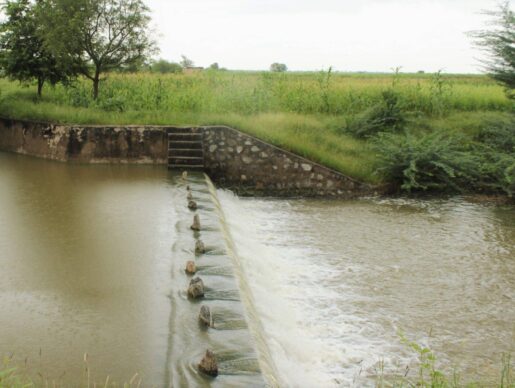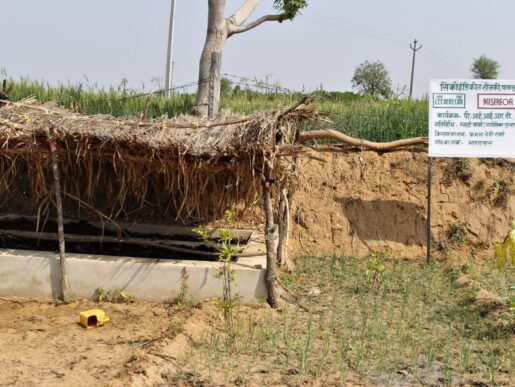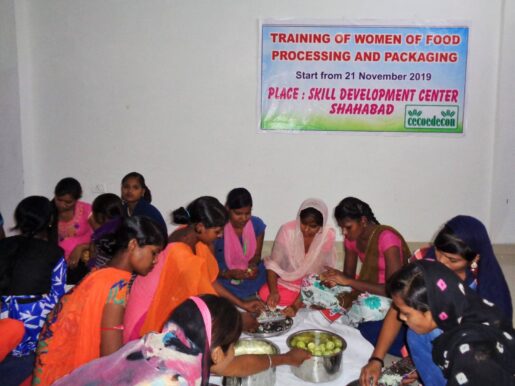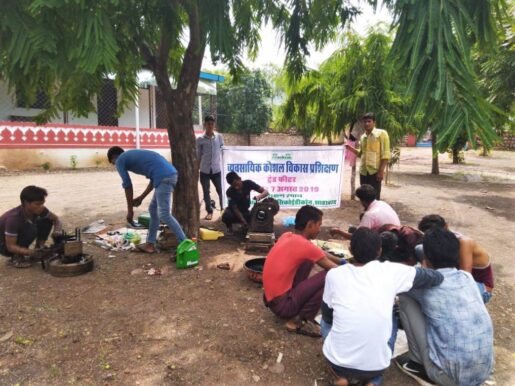LIVELIHOOD SECURITY & ECONOMIC JUSTICE
Livelihood Security
CECOEDECON’s livelihood security initiatives have evolved over a period of more than three decades. The initial interventions focused on water harvesting, soil and water conservation, watershed and eco regeneration initiatives. The major objectives of these interventions were to address the problems caused by continuous drought and the consequent migration of the marginalized to the cities. Interventions such as the farm field funds, gully plugs, small check dams, pastureland development and tree plantations were immensely helpful, not only in providing immediate employment to people, but also in assisting the farmers to increase their production and income along with the long term benefit of eco-regeneration and reduced soil erosion.
Building on the soil and water conservation and drought mitigation efforts, the next step for the organisation was to begin to focus on ‘Sustainable Agriculture’ with the active participation of the local communities. CECOEDECON started to promote sustainable agricultural practices, with strong belief that the farmers have a lot of wisdom, knowledge and practical experience in soil and water conservation, agriculture, horticulture and animal husbandry. Traditional practices such as dryland farming, mixed cropping, intercropping and agroforestry were promoted, along with various capacity building trainings, information exchange and exposure visits.
Moreover, CECOEDECON had the opportunity to demonstrate some of these practices on its own farm. This was extremely useful for the farmers to practically see these ‘methods and practices’ work effectively in the area and to motivate them to adopt new practices. Some Participatory Technology Development (PTD) initiatives, gender dimensions in natural resource management and agriculture activities were initiated during this period. The expertise of the organization in watershed development was recognized by the Government in this period and as a result CECOEDECON was included as a member of the Watershed Evaluation Committee of the state.
The overall impact of these interventions was that the farmers become more prepared to resist drought, other disasters and become more climate resilient. Moreover, through ‘SUSTAINET’ (a Sustainable Agriculture network promoted by MESEREOR, along with other three German Bilateral agencies) the organization published some of its best Sustainable Agriculture practices for wider dissemination. This was also a period when the organization started to promote seed and food sovereignty concepts and became a part of a South Asian “Peoples Caravan” in collaboration with Pesticide Action Network, Asia and The Pacific (PANAP).
Learning from farmers led approaches in sustainable agriculture, CECOEDECON was able focus on farmer to farmer learning approach in the next phase. This approach was further strengthened with a number of capacity building programmes for the farmers on sustainable agriculture and the formation of ‘Farmers Clubs’.
As the organizational reflection processes guided its direction towards the Rights Based Approach to development, the specific challenges of the ‘Land Rights’ of the Shaharias, (the primitive tribe in Rajasthan) access to food security schemes, establishment of safety nets, access to crops and livestock insurance schemes etc. were emphasized, along with the disaster management through the development of Emergency Contingency Plans and the formation of Disaster Task forces at the block level (block is a rural administrative area).
Being a dynamic organization, all its Natural Resource Management initiatives were further evolved into the current ‘Livelihood Security’ theme. While the Government started to increasingly focus on ‘Hardware’ – initiatives such as Soil and Water conservation ‘Agriculture’ ‘Horticulture’ and Livestock initiatives through Mahatma Gandhi National Rural Employment Guarantee Act and through different livelihood Missions, CECOEDECON shifted its emphasis more on ‘Software’ interventions, to fill the gap, such as capacity building, networking and policy advocacy issues. Apart from the focus on sustainable agriculture, risk reduction initiatives, promotion of off-farm livelihoods, and linkages to multilevel action on policies related to food and agriculture, were emphasized.
The Community Based Organization (CBOs), and their apex bodies, played a very important role in terms of monitoring the food security and other livelihood related schemes of the government. Their networking and policy level intervention at different levels (State, National and International) on issues such as food security, disaster risk reduction, biodiversity and farmer’s rights, have produced tangible results. The objective of making targeted institutions to be more independent in dealing with livelihood security issues has been realized to a great extent.
Climate change also presents a real threat of severe environmental, economic and social impacts in the region. The already vulnerable communities (we work with) and their livelihood systems are in severe stress. Climate change has not only negatively impacted the core livelihood sector i.e. agriculture but also proved as a risk multiplier for the core human development issues such as food security, human health and economic development.
Recognizing climate change and associated threats to life and livelihoods, organization has been focusing on enhancing adaptive capacity of partner communities to address climate change challenges.
At present, the theme of ‘livelihood security’ seeks to focus action on the right to livelihood and the right to food for individuals and households. The right to water and the right to a safe environment are integral to this theme. Today the theme of livelihoods becomes even more relevant due to the social conflicts arising from a denial of people’s access to the means of production such as land and water. The goal of Livelihood security theme is to develop climate adaptive and resilient livelihood systems through diversification, technology adoption and access to rights-based entitlements for small and marginal farmers and disadvantaged communities.
Recent years have highlighted the plight of the farming community. Technology, improved varieties, inputs and loan waivers have not assured decent living returns for the farmers. Record production of food grains can assure food security of the nation but it does not automatically ensure the right to food of the food growers themselves if they do not reap economic benefits from the process. The livelihood theme addresses critical issues of rights and controls to empower communities to gain access to basic productive resources, challenge corruption, ensure proper delivery of services, and to ensure that appropriate policies and systems are put into place to realise the full potential of their livelihoods.
Economic Justice
Economic justice requires redistribution of wealth. The present state of play undermines the rights and interests of poor people including the right to food, water, health care and a sustainable livelihood. Noting that poverty, development, human rights and trade are linked inextricably; CECOEDECON has always felt, argued and strived that grassroots issues get placed at the centre of the agenda of international bodies and the government.
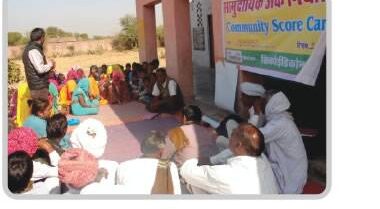
Even as global wealth increases and many developing countries show a sustained rate of economic growth, millions of people are still denied the right to food. Our preoccupation with free trade and reliance on market forces for overall economic development has not been able to improve people’s standard of life. Self-reliance of households and communities is being sacrificed and there is increased dependence on few traders for food security. The global trade mechanism does not even recognise its obligations to respect human rights. The global community has failed to prevent and reduce inequality, poverty, and environmental threats largely because of lack of political will by member states and the dominance of powerful countries. Even national governments enter into international agreements sealing the fate of millions of their countrymen without even informing or discussing the issues in question with the citizens.
It is the need of the hour to demand justice from economic development through ensuring equitable benefit sharing, participation in decision making, demanding that basic human rights be respected in the development process, and that governments be accountable to the public for the impacts of their decisions. At a more specific level the organisation will strive to protect the rights of its partner communities including right to food (security and sovereignty), access to resources on which their livelihoods depend, right to a safe environment, decent returns from their livelihoods, and right to participation. It is our vision that this economic development will contribute to achievement of the goals of reducing hunger and poverty.
After adopting the ‘Rights Based Approach to Development’; CECOEDECON began to focus on ‘Growth with Justice’. Under the economic justice theme, CECOEDECON demands fair economic development, by ensuring equitable sharing and access to resources, participation in decision making, assertion of basic human rights in the development process and government accountability towards the general public for the impacts of its decisions. The goal of Economic Justice Theme is to catalyse the process of people’s participation in decision making and to ensure protection of human rights in the process of economic development.
The six issues covered by this theme are Fair Trade, Special Economic Zones (SEZ), Land Acquisition, Bio-fuels, Bio-diversity, Climate Change and Genetically Modified Organisms (GMOs). However, the intensity by which some of these issues were taken up varied due to the government policies, changes in context, donor priorities as well as the relevance of the issues to different communities.
